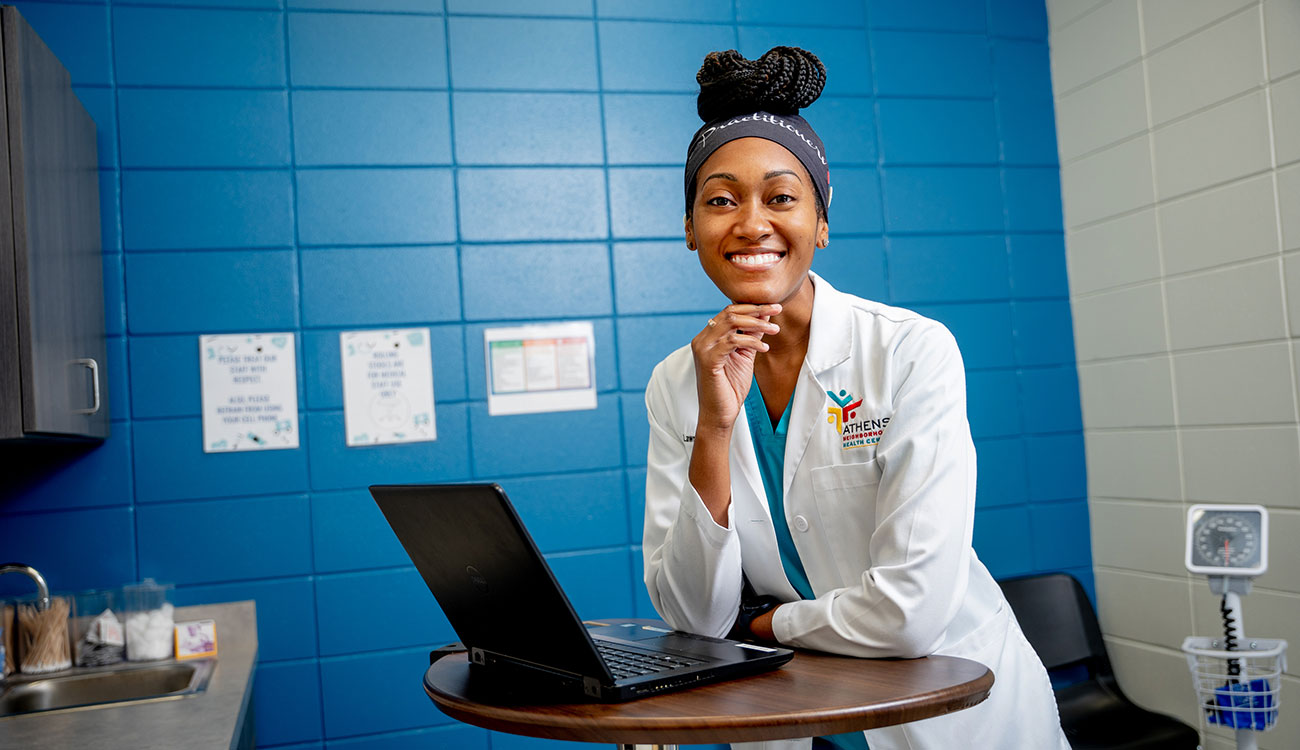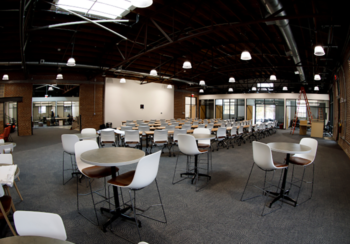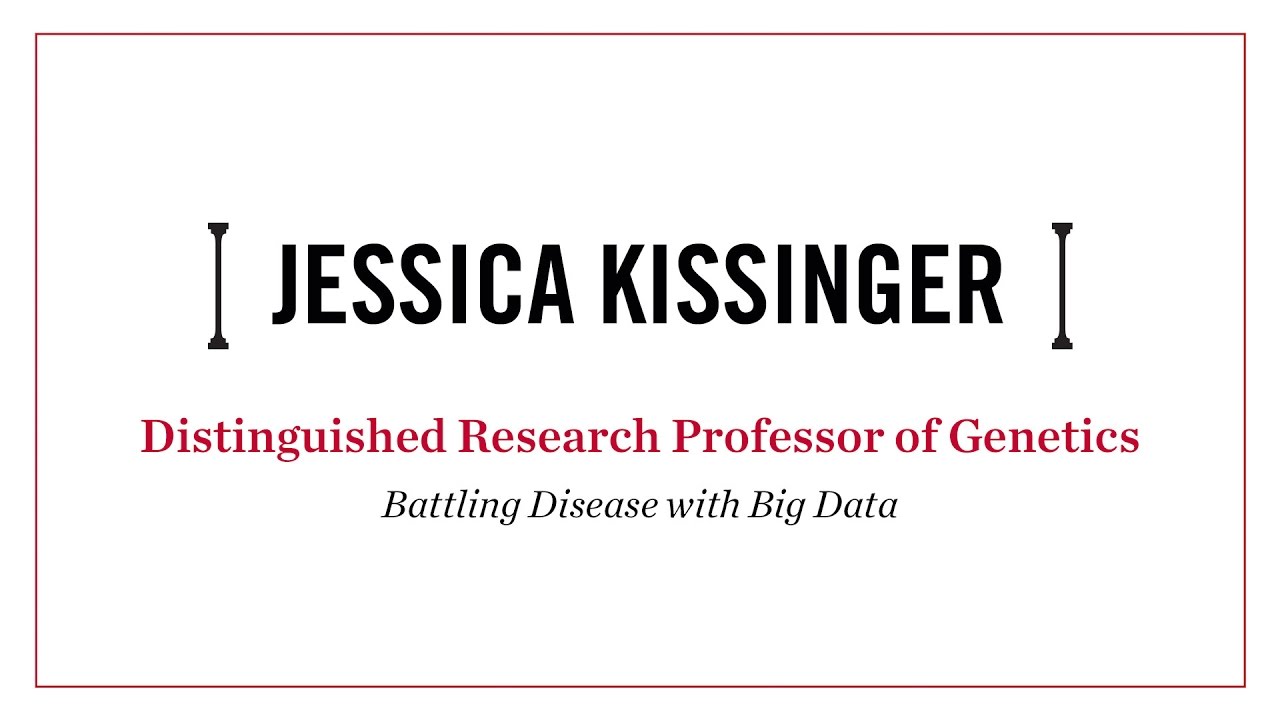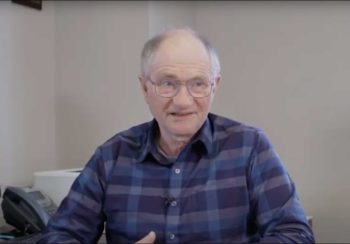When the novel coronavirus pandemic struck in 2020, it delivered an array of unforeseen hardships including shutdowns, unemployment and overburdened hospitals in communities across the world.
Athens-Clarke County, however, had a head start in reacting to its community’s needs, thanks to an ongoing research project from the University of Georgia’s College of Public Health. The Athens Wellbeing Project (AWP), which surveyed local residents in 2016 and 2018, provided detailed data and analysis at the neighborhood level that allowed community leaders and institutions to deal with variables ranging from food insecurity to vaccination outreach to WiFi distribution for its citizens in need.
“The data wouldn’t have been available before AWP, and the capacity to analyze that data and get it to those partners quickly was also made possible because of the researchers on our team,” said Grace Bagwell Adams, an associate professor in the College of Public Health who started the Athens Wellbeing Project in 2015 as its lead investigator. “The pandemic has made it especially clear for our community stakeholders how useful the data can be. We have applied it multiple times in the context of food security and emergency food distribution and other areas.”
Kelly Girtz, mayor of Athens-Clarke County, concurs.
“We already knew where those challenge areas were, so we didn’t have to reinvent the wheel in the midst of a crisis,” Girtz said of the household data provided in two previous AWP surveys. “We already knew where deficits were.”
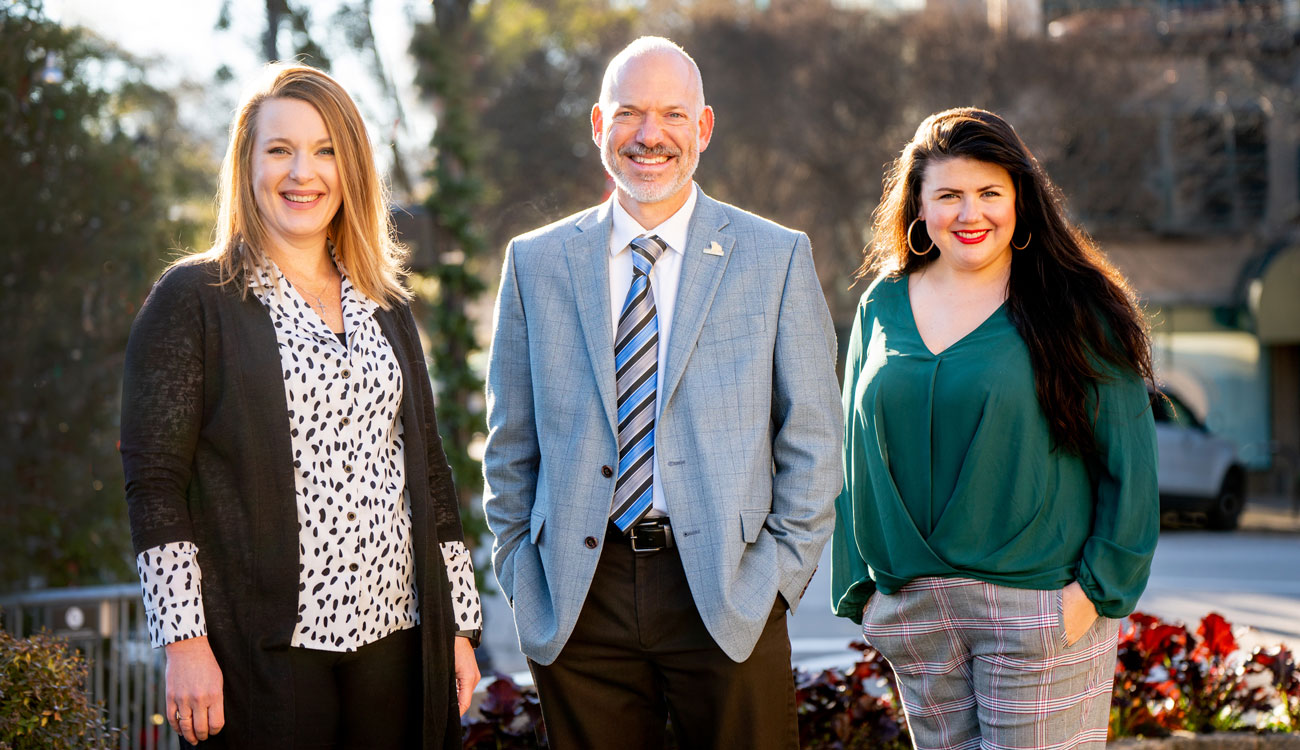
The next phase of wellbeing
Now the Athens Wellbeing Project has launched a third survey, utilizing postcard mailings, email outreach and special data-collection teams that partner with nonprofit shareholders for vulnerable populations.
The stated mission of Phase 3 remains exactly the same: “to empower the Athens community with meaningful data that will lead to more informed decision-making, improvements in service delivery, and greater quality of life for our citizens.” Bagwell Adams, now an assistant dean for outreach, engagement and equity at CPH, said AWP collects data across five domains: health, housing, community safety, civic vitality and education.
“We are trying our best to get meaningful data into the hands of our community stakeholders—the school district, the local government, the police department, and our hospital systems, as well as local non-profits,” said Bagwell Adams. “Most communities look at each of these data points in isolation rather than breaking the silos down among these domains. That’s a mistake, because if we want to understand any areas of these human services deliveries, we have to look at all of them.”
The AWP survey provides a holistic snapshot of the community’s needs and assets over time at a neighborhood level so it can better inform policies and help deliver the services needed for area households to shift, as Bagwell Adams puts it, “from surviving to thriving.”
The wealth of information already collected in Phases 1 and 2 has gone a long way toward that goal, Girtz said.
“The breadth of topical areas that are contemplated—housing, childcare needs, perceptions around public safety, employment needs—to have that 360-degree snapshot of the community is good,” said Girtz. “I think without AWP we would have some general ideas about what community needs are, but we wouldn’t be able to drill down to the neighborhood level.”
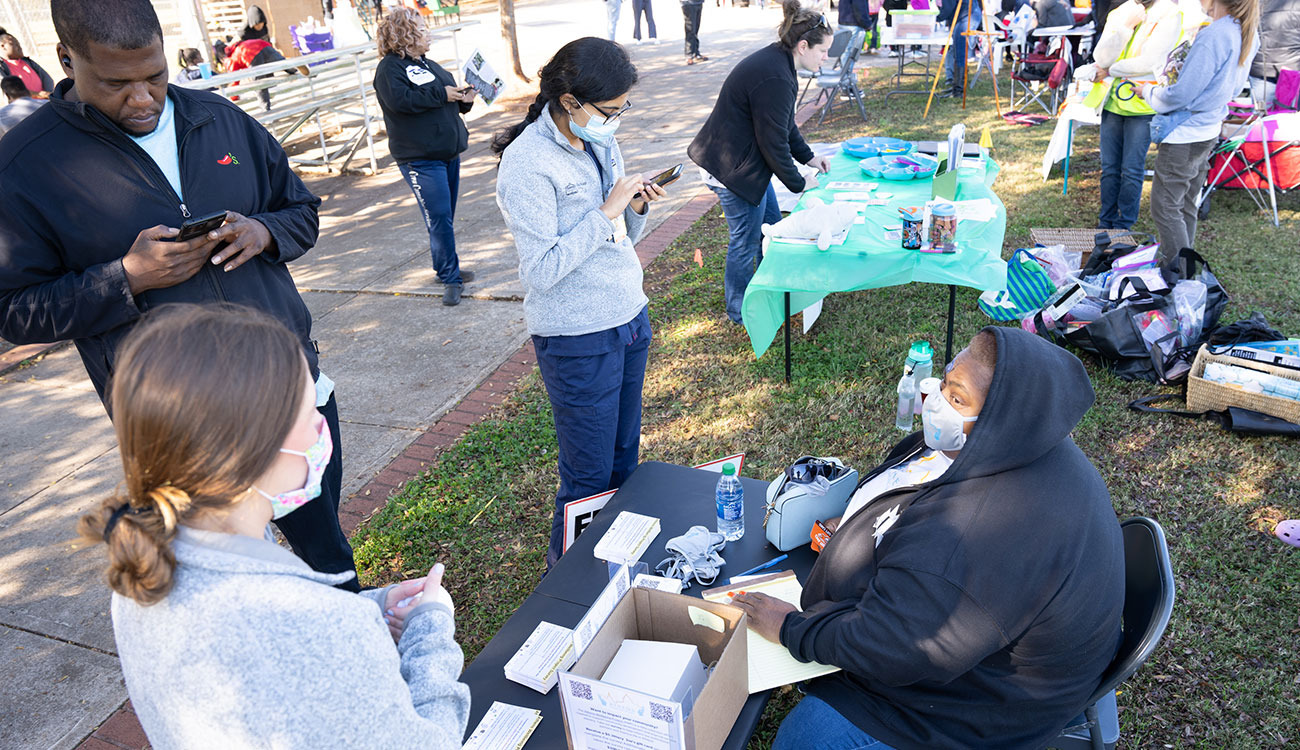
Local data, local impact
The impact of the project could be measured in concrete ways even before the pandemic hit.
The Clarke County School District was aware of high rates of absenteeism and tardies by students and teachers at Hilsman Middle School, but it didn’t know why. AWP data helped to identify the area around HMS as one of the most uninsured/underinsured and among the more financially fragile in Athens.
That led to a community health center on site at Hilsman, in partnership with the Athens Neighborhood Health Clinic, to service students and teachers, decreasing the time students missed school to see a doctor.
“The data helped to drive innovation for us,” said Lawrence Harris, the chief of community engagement and strategic partnerships in Clarke County schools. “We’ve seen attendance go up for staff and students at Hilsman. It’s unfortunate the pandemic hit a year after the health center opened … but since reopening we’re able to test staff and students on site as well as the community—almost an onsite COVID command center for testing and vaccinations.”
AWP data also informed the school district when students were forced to attend school remotely from March 2020 through May 2021.
“During the pandemic we used the wellbeing data for understanding which families and neighborhoods might not have access to WiFi or consistent access to wireless internet. So we used those reports to figure out how to deploy our hotspots and WiFi buses,” Harris said.
“The wellbeing project has been an amazing partner. We’ve used the data for our local school governance teams to not only see what’s happening within the walls of our schools but with the families that reside in the neighborhoods around their schools so they can address other gaps that we would not traditionally notice.”
Other examples in which the AWP benefitted Athens-Clarke County residents:
- St. Mary’s Hospital developed and deployed a mobile food pantry after the data showed there were more food-insecure people than were being served.
- For the first time ever, the Cancer Foundation of Northeast Georgia increased its financial support of families and individuals living with cancer after data showed that the financial burden of cancer was higher than previously understood.
- The data helped inform behavioral health interventions and support, particularly through telemedicine and telehealth during the pandemic when there were fewer in-person services for people with mental health and substance abuse issues.
- Athens-Clarke County was able to estimate how many residents might be facing eviction during the pandemic by using the data to determine how much families were paying for housing and how that compared to their income.
“What we found is the housing fragility of paying more than 30 percent of income is way greater than anybody anticipated,” Bagwell Adams said. “That was used to demonstrate the level of need for the federal government and inform the efforts of our local government in housing policy.”
Said Girtz: “We have north of $50 million in federal funds that we want to direct toward community need, and AWP is going to help us do that in a carefully crafted way.”
Leveraging philanthropic investment
Data from the Athens Wellbeing Project also informs local philanthropic decisions.
A prime example is the Get Comfortable campaign, spearheaded by Creature Comforts brewery, which mobilizes the funds raised by more than 60 local businesses. The campaign raised $1,800 in its first year in 2016 and has drawn $2 million collectively over the past six years.
Its philanthropic model relies heavily on the AWP data to determine the areas of greatest need and then to distribute donations to local agencies that address those needs, said Matt Stevens, the director of strategic impact at Creature Comforts.
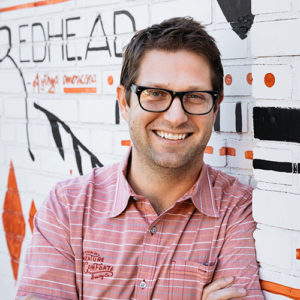
“We aspire to remain as dispassionate as the data,” said Stevens, a former student of Bagwell Adams in the graduate program at CPH. “We all have causes we care about, and there’s nothing wrong with a cause-driven approach. But we wanted to ask the larger, more complicated question—what are the most pressing needs here? Rather than leaning upon our understanding, we seek instead the priorities that have been identified by our local leaders and datasets, and then we inquire how best to channel our resources in that direction.”
Get Comfortable rigorously studies the data before soliciting requests for proposals from local nonprofit agencies. It then relies on the advice of an advisory council of local stakeholders (including AWP) to select which agencies will receive support each year.
“We believe in the power of data-driven decision making as a business, but also in terms of our corporate philanthropy,” Stevens said. “We have gathered so much insight and inspiration from a centralized needs-assessment database, and we feel very fortunate that in Athens we have that sort of resource. Not every community does.”
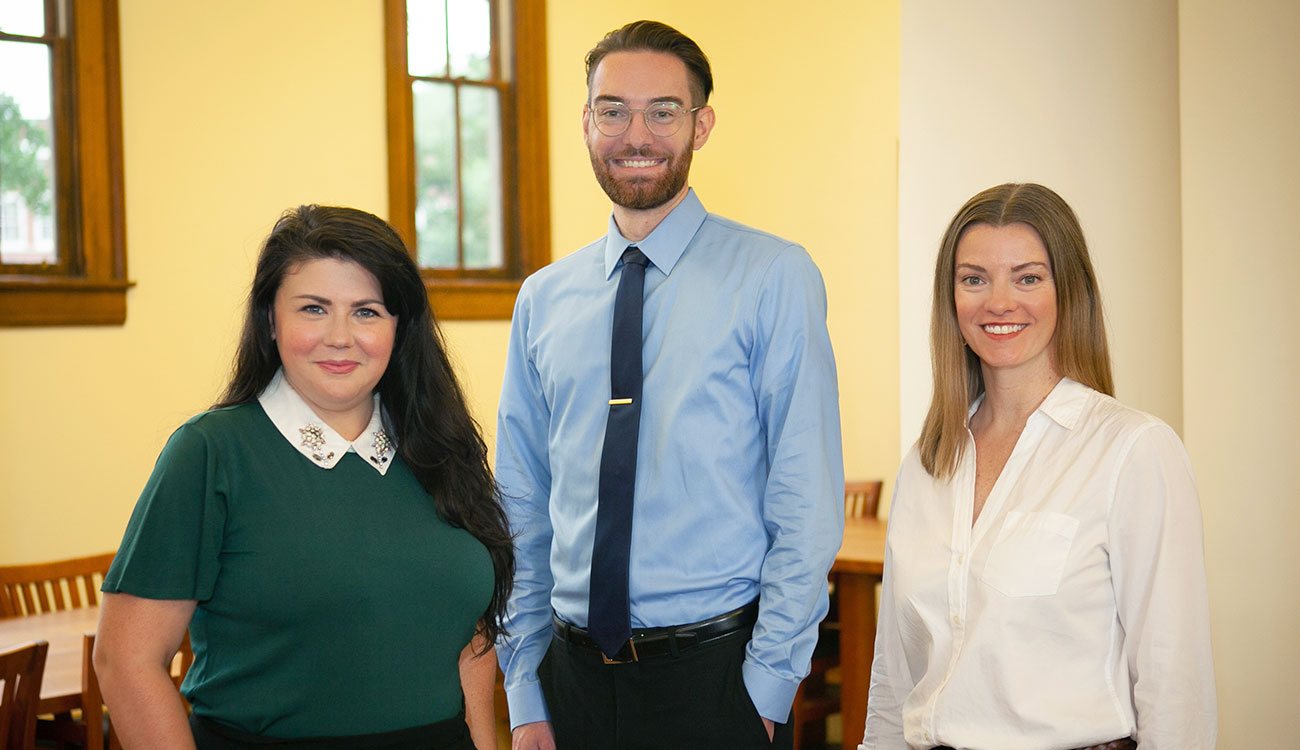
Data gathering in a pandemic
Bagwell Adams said her team—which includes survey designer Amanda Abraham from the School of Public and International Affairs, geographer Jerry Shannon of the Franklin College of Arts and Sciences, doctoral fellow Megan Bramlett and project manager Jacob Lambeck— “worked with stakeholders to identify what they need and added some questions to help us capture the impact of COVID-19 on families in our community,” said Bagwell Adams.
Current surveys are taken online instead of door-to-door, with 10,000 handwritten postcards distributed to the targeted sample households. The response so far has exceeded expectations, with 3,500 household responses (and counting) from this round alone.
“In over five years I do believe we’ve built a little bit of brand recognition,” Bagwell Adams said. “I would like Athens Wellbeing Project to be a household thing where people know that every three years we’ll be coming to talk to them, and they understand how the data are used. The most important thing in social science research is getting data over time.”
The Athens Area Community Foundation stepped in to serve as champion of the Wellbeing Project in 2017—holding the funds, paying expenses and convening stakeholders, while UGA conducts the research and performs data analysis. Sarah McKinney, Community Foundation president and CEO, believes the longitudinal data collected by the project fits perfectly with her organization’s long-term mission.
“Oftentimes we are rich in data but poor in understanding,” McKinney said. “With the Wellbeing Project, the value here is a dataset that is understood.”
Six years in, the Athens Wellbeing Project has proven its worth to the community stakeholders who may have been hesitant to invest in it when it started in 2015. The two local hospitals weren’t at the table in the first round but are keen stakeholders now.
“I’m just very grateful that our community institutions and our university have taken a chance with this project,” said Bagwell Adams. “If you look around, there are lots of communities trying to track wellbeing. But I’ve yet to find one doing it in such a collaborative and thorough way. I think Athens is trailblazing in that respect.”
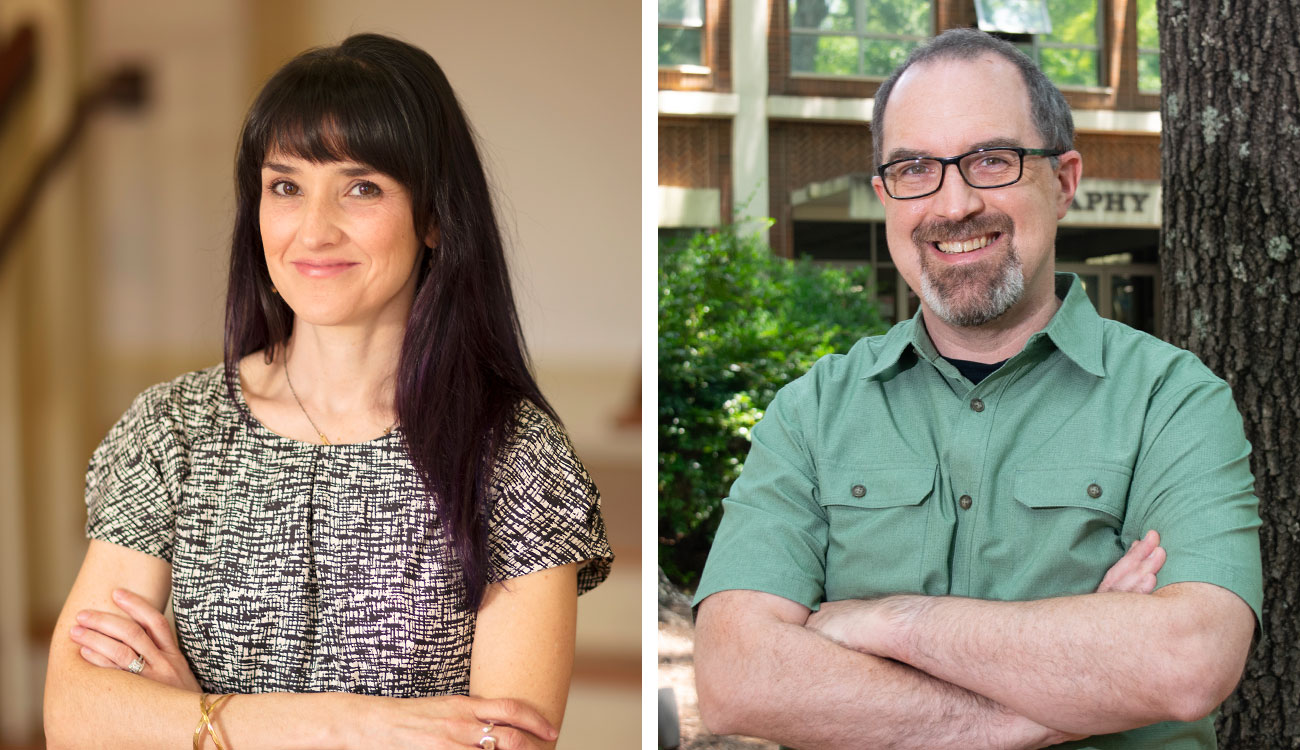
Expanding the impact
Bagwell Adams believes the Athens Wellbeing Project can serve as a model to be implemented in other communities.
“To be successful, it needs to be tailored to the community with local data for local solutions,” she said. “Aspects of this project can be applied in other places, most importantly as a template for how you bring stakeholders together to invest in a process. That can be replicated, and it should be replicated.”
The success of AWP illustrates that the University of Georgia and the Athens community can work well together for the collective good.
“It is seldom that the private, non-profit and public sectors come together and execute a unified strategy when it comes to community development work, but I would argue that we need each other,” said Stevens. “We need local leaders to provide us the guidance to maximize our efforts and, conversely, communities need more businesses not only to get in the game but to make more informed decisions. And we have found a great, great partner in the Athens Wellbeing Project.”



